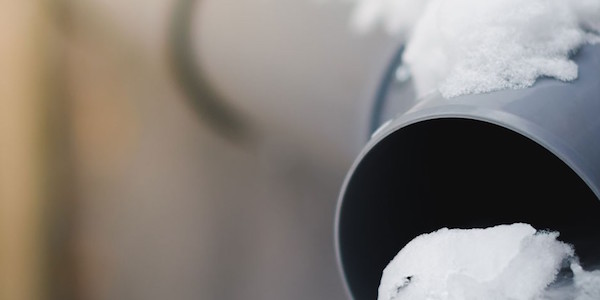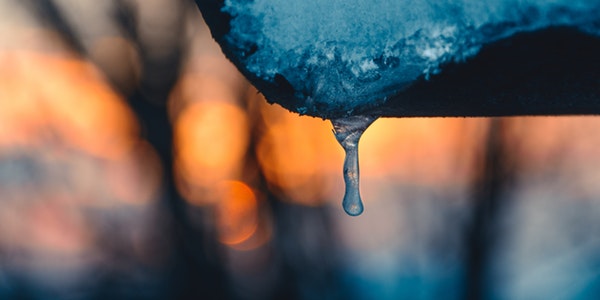Before snow reaches the ground or frost starts to form around windows, you should winterize the plumbing in your home. Your system can be sensitive to the Canadian cold, and if you don’t take any precautions, you can end up with frozen pipes or worse. Now is the opportune time that you can protect your house from the harshest season of the year, making for a smooth transition into spring.
Why should I winterize?
Canada is known for having freezing winters that seem to go on forever. There’s a common joke exclaiming that the county has only two seasons, phasing out fair-weathered fall and spring altogether. The wisecrack is funny because it rings true, with the blistering conditions starting as early as October and lasting well into April. This year, the Farmer’s Almanac predicts that there will be a very cold winter forecast hitting the entire country up through the month of March — Ontario is expected to have biting temperatures and an above-average snowfall. The Farmer’s Almanac is rarely off-base in its predictions, so it’s best for homeowners to take the news seriously and start winterizing right away.
Frozen Pipes:
There are times during the winter when you will go to wash your hands or get a glass of water, only to turn on the tap and have nothing come out. Check your other fixtures to see if they are working properly and the water is still running — when it’s an isolated situation, it means your pipe is probably frozen.
If you happen to have a frozen pipe, do not try to find it or heat it on your own. The moment that you discover the problem, you should call a plumber in Toronto to quickly and efficiently thaw out the pipe so that you can avoid spending hours holding up a hair dryer or risking your safety trying to melt the ice with a torch. The experts can thaw up to 175 feet of metal lines by warming the outer layer and letting the water pressure finish the process. After their visit, you will be able to use that tap to wash your hands or grab a drink like normal.
To prevent frozen pipes from even happening, you should winterize them before the temperatures start to drop. Insulating your pipes is considered to be one of the best tips to prepare your plumbing for winter — you can cover them in a coat of fibreglass pipe insulation and specialized plastic insulation wrap or you can carefully tape on tubes made of polyethylene foam. Shut off any outdoor faucets and drain any remaining water from the pipes, so ice can’t get inside.
The same is true for garden hoses, which should be disconnected from the faucet and put into storage. One idea that people can follow to prevent frozen pipes at home is to open up their cabinets in the kitchen and bathrooms to let the heat get to the plumbing, especially when there is a cold weather warning.
Here are some more tips to prevent your pipes from freezing during the season:
- Maintain a warm indoor temperature, even when you leave the house.
- Add wall insulation to areas that may be vulnerable to frozen pipes like the basement or the garage.
- If you plan on leaving your home for more than a day, you should shut off the water.
One of the reasons why you want to be so thorough with winterizing your pipes is that frozen pipes can burst and cause shocking water damage. If this disaster strikes, you should try to shut off the water and contact the professionals right away — you can call us 24/7 any day of the week all year long to help you with flooding.
Spring Thaw Flooding:
As you can see, burst pipes during the winter are a common flooding risk for homeowners during the winter. When the season dies down, homes are also in danger of spring thaw flooding — this is when the combination of seasonal rain and melting snow builds up around properties and invades the lowest levels of the house.
It’s recommended that people prepare for these types of emergencies by clearing harsh chemical products out of the basement to prevent the water from being further contaminated. Every household should also have an emergency kit stocked with bottled water, non-perishable food and first-aid items.
Ideally, you can use certain plumbing upgrades and basement waterproofing services to effectively protect your house from water intrusion and flooding when the weather starts to get warmer. For interior services, you should consider getting a sump-pump installed and getting your sewer drain cleaned in case there is an inconvenient clog — together these factors can stop water from pooling onto the floor. Experts can apply a waterproofing agent and membrane to the exterior walls, which is the only method that can truly prevent the structural damages of water intrusion.
Broken Water Heaters:
Having a broken water heater won’t be as disastrous as a burst pipe or flooding basement, but it will be an inconvenient problem for the coldest time of the year. You won’t want to be stuck with the prospect of frigid showers or washing your hands under a stream of icy water until you can get the appliance fixed.
Before the season begins, check if the water coming out of your faucets is responding to heat adjustments made by the taps. Other warning signs to look out for are leaks around the bottom of the tank or strange noises. Now is the opportune time to give the appliance an upgrade so that you can escape the cold with a warm bath or a steamy shower.
People know that they have to get their car ready for winter with sets of seasonal tires, ice removal gear and an emergency kit for when they get stuck in the snow. Winterizing a house’s plumbing can provide the same benefits as these precautionary steps for your vehicle. You will feel secure and comfortable during your everyday activities and be relieved at your foresight if something goes wrong.






